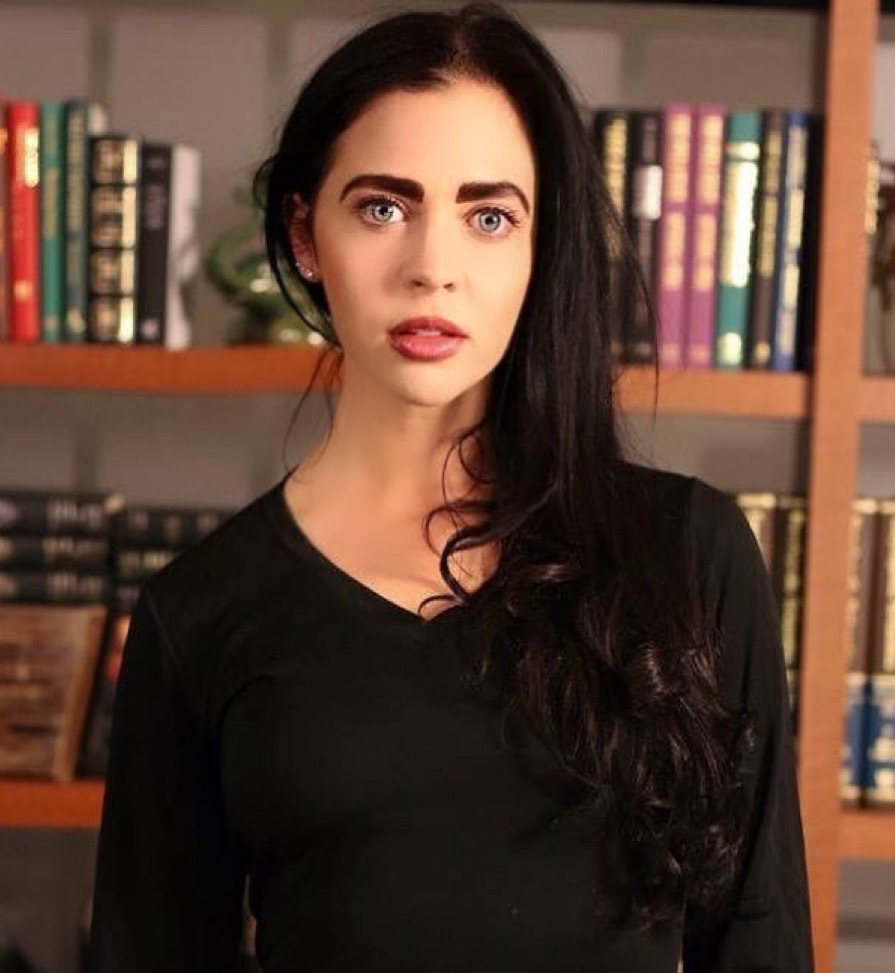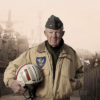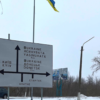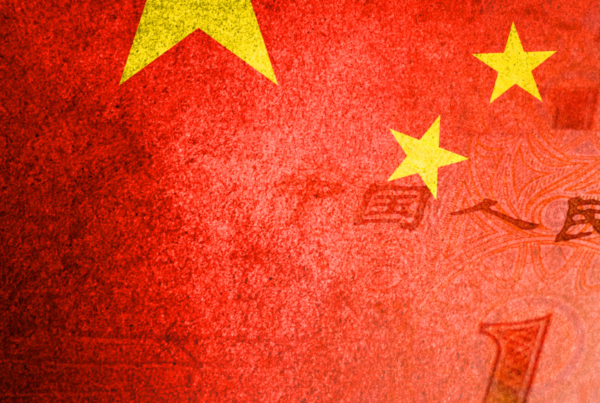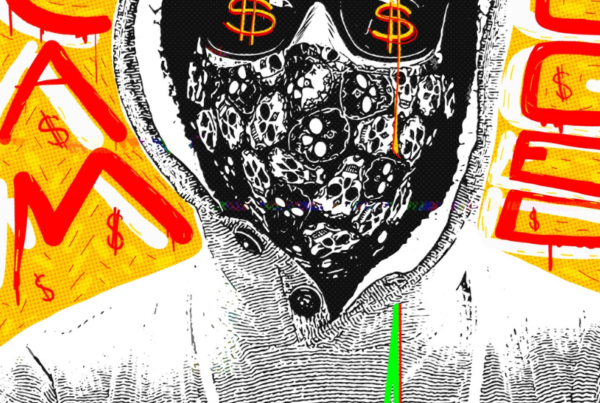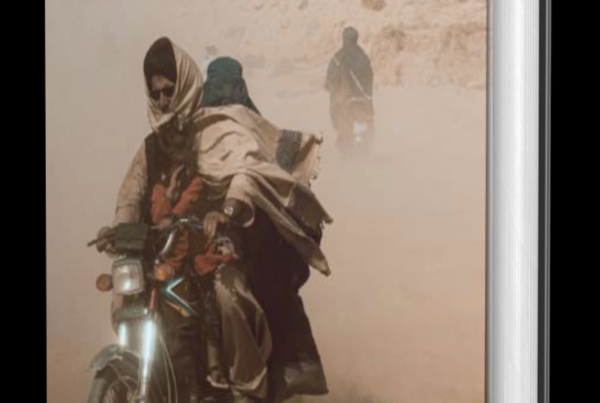Boone Cutler occupies a special place in the veteran community: devoted leader, restless advocate, unassumingly articulate, and a sort of tough-love friend to everyone.
With a distinct ginger beard, dark wrap glasses and signature plaid or polo shirt, the former paratrooper bears a too-alike-to-be-coincidental likeness to South Park’s PC Principal (more about that another time). And while Boone’s method of delving into uncomfortable issues and getting things done is not exactly politically correct, the cartoon caricature and Boone share the same sense of dedication to promoting the things they see as mattering most in our fractured world.
“One day, twelve years ago, I told my bro, don’t leave me on this planet spinning around, wondering what happened. Should I have done more? Was there more about your life I didn’t know about? At that time, I could deal with being killed (in combat). But I could not deal with one of my guys being hurt and me not being there,” Boone tells me, wading into the painful waters of veteran suicide statistics. “And so, we made an agreement.”
That agreement became the “Spartan’s Pledge”: “I will not take my own life by my own hand until I talk to my battle buddy first. My mission is to find a mission to help my warfighter family.”
And what matters most to this veteran now is traveling across the country to propel and pass on this oath. According to the U.S. Department of Veterans Affairs (VA) 2022 National Suicide Prevention Report, veteran suicides dipped in 2020, some 9.7 percent less than the counting year prior. However, that chilling statistic still stands at 6,146 veterans taking their own lives, averaging almost 17 per day.
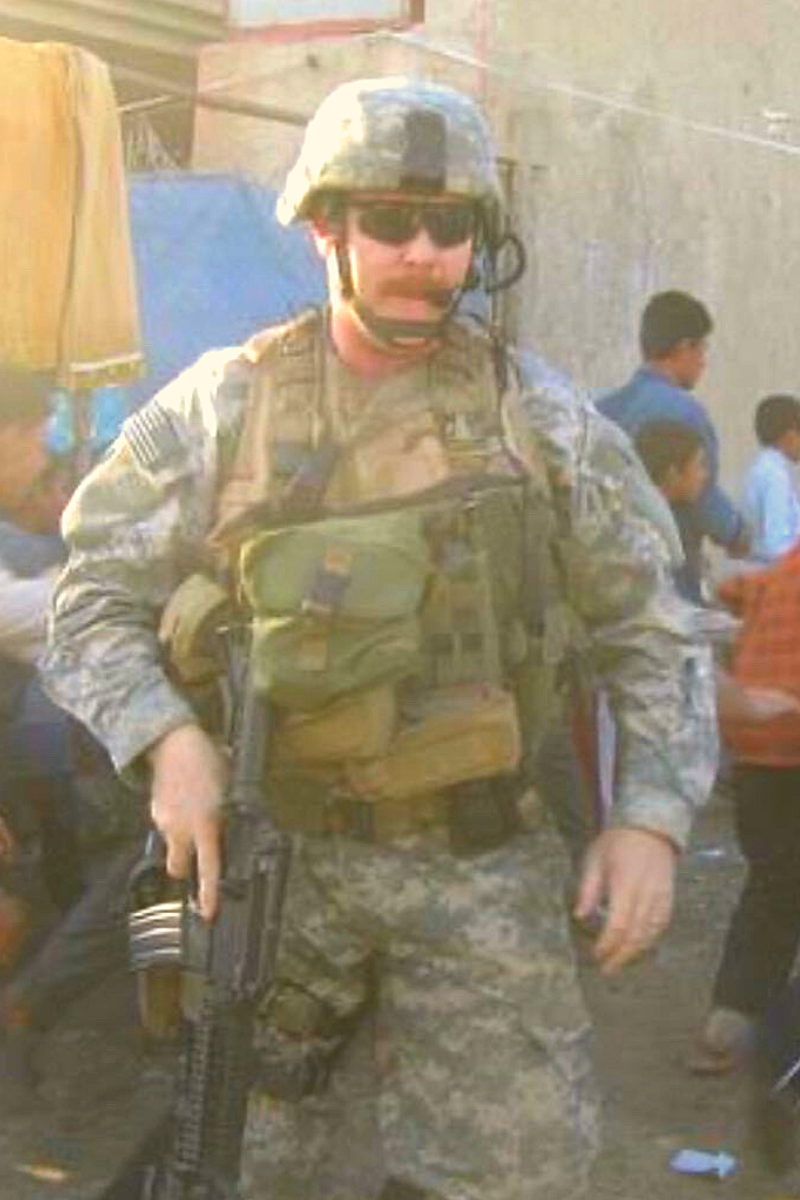
But for more than a decade, Boone has been purporting to reach as many Americans who serve and served, urging his comrades to repeat these solemn words to a chosen confidante should ending it all ever enter their minds. The Spartan Pledge has since been stamped on everything from NASCAR vehicles and military unit plaques to tattoos etched into the roughened skin of warfighters.
It is a mission Boone hopes will long outlive him.
A California native raised by a U.S. Marine father and Vietnam veteran, Boone bounced from town and town as a child – he attended nine different schools in twelve years – and was fed a steady diet of what it means to be an American service member.
“I was the son of a Marine, and that was drilled into me repeatedly. When he was getting ready for PT tests, I would run with him. I was six years old, and I was there doing sit-ups and push-ups and marching into the mountains,” Boone recalls. “I think that is how we showed love. He showed love by ensuring he was always training and preparing me, making me strong. Everything we did together had something to do with building strength, and that was a blessing in my life.”
Further, Boone’s curiosity for military service was cemented by stories of his grandfather, a U.S. Marine and the longest-held prisoner of war (POW) in the Second World War. He was captured on December 8, 1941 – the day after the searing Pearl Harbor attack – and held until the war ended in September 1945.
“He was not just a prisoner of war. He was the longest-held prisoner of war in the time,” Boone says, his tone stern with pride. “He was stationed in Guam when Pearl Harbor got hit, and as attacks were still going there, they (the Japanese) hit Guam. So, the Japanese rolled everybody up (transporting them to mainland Japan), and he spent the whole war in captivity.”
While the son and grandson of proud Marines, Boone – fascinated by the headlines swirling around the 82nd Airborne leaping into Panama in 1989 – left home at 17 that same year to join the Army Airborne Infantry in what he calls “also an act of rebellion” against the Marine lineage.
“I wanted to jump out of planes and shoot guns. I went into the infantry and over to Germany,” Boone notes, his voice energized by the memory.
However, he honorably discharged in 1994 and quickly realized he “didn’t like being out.” Nothing quite filled the void. While contemplating a run for the U.S. Special Forces, Boone received a “counteroffer” from his childhood karate instructor to join his Private Investigation firm in Los Angeles. Back then, Boone stresses, making $12 an hour seemed like a small fortune.
Only there was still something missing from his life. Subsequently, there were bar fights and brushes with the law, but Boone eventually went to Police Academy training.
“It taught me about American society and changed my peer group completely. Yet I still wanted to jump out of airplanes and shoot, but that was too expensive to do as a civilian,” Boone underscores.
And then, on a clear September morning, planes struck the World Trade Center.
“When 911 happened, I was like, I am not missing this party. There is no fucking way I am missing this party,” Boone says. “And quickly, I was back in my uniform.”
In the next installment of his military career, Boone entered the fray of psychological operations (PSYOP), honing critical skills in the delicate craft of psychological warfare.
“I didn’t know I could be an intellectual person. I had no idea I could be the smart guy growing up. But this training showed me I could, and I was,” he notes. “You have to be creative all the time, on your toes. You have to constantly plug and play with these principles and ideas to fit into a situation and influence a situation,” he enthuses. “It is very intellectually dynamic.”
In 2005, Boone deployed to the sordid depths of the notorious Sadr City as a PSYOP Team Sergeant, a chapter of life that would define much of the man Boone is today.
“You’re influencing both sides of the house. You’re influencing the military; you’re supporting it because you are supposed to underpin the idea that we are here to fight the insurgents. But to the Iraqi people, we are the insurgents,” he asserts. “So, it becomes this whole balancing act.”
Boone’s job required him to routinely make the rounds at local morgues, often finding that the dead were individuals who had interacted (however loosely) with the Americans days earlier. Sometimes, he reflects, they had notes attached to their remains from the militias for the U.S. troops to find.
Nevertheless, with a careful drip of psychological operations, essentially “testing different messaging themes, and throwing out disinformation,” Boone says the Shia militias that dominated Sadr City became “so fucking paranoid, they started targeting each other.”
And while it is the popular political position now to dismiss the 2003 invasion of Iraq as unjustified and a blood-fueled waste, given that no weapons of mass destruction were ever unearthed, Boone says he never questioned the job, and never reached the disgruntled threshold that so many of his fellow soldiers do.
“At the end of the day, I knew that bringing democracy to Iraq would not make America safer. But I felt my mission was to at least make the kids of the bad guys safer,” Boone surmises. “If I could help (the next generation), then I would be doing a good thing.”
However, a mortar attack that had knocked him off his feet early in his 2005 combat tour quickly caught up with the soldier.
“I didn’t think I was hurt because I still had all my body parts; I wasn’t picking metal out of my body or anything. I figured I was okay; I would shake it off and deal with it because that was how my father taught me to deal with things,” Boone remembers. “But then the headaches started. I had trouble with my balance, and two weeks later had another fall on a roof and got knocked out again.”
Eventually, after the tour ended, his unmistakably serious orthopedic and traumatic brain injuries sent him to Walter Reed Army Medical Center. He remained there for two years – struggling with angry eruptions and utter frustration that the deluge of prescription medications being pumped into his body seemed only to make his PSTD worse.
For a window of time, suicide seemed the only cleave out. But Boone quickly learned he was far from alone in such ideations when he started questioning fellow veterans and law enforcement officers. As a result, the Spartan Pledge came to life, in what Boone depicts as a last-ditch sign of respect for one’s “battle buddy.”
“It is an agreement. As I told my buddy, you are a grown man. You are going to do what you are going to do. But give me that respect,” Boone says. “I don’t want to spend the rest of my life wondering.”
Further, it took being held up in Walter Reed Army Medical Center amid the Neglect Scandal of 2007 that Boone’s ascent into activism took hold in other ways. In 2010, years after finishing writing, Boone published “Voodoo in Sadr City: The Rise of Shiaism in Iraq” in a quest to share the lessons learned in the violent throes of Sadr City at the height of combat in the Iraq War.
That same year, Boone founded the National Warfighter Symposium to not only draw light on the darkness of veteran suicide, but also to other post-military challenges. These included raising awareness about veteran homelessness and the push to offer alternatives to pharmaceutical drugs to treat debilitating bouts of conflict-induced trauma. Boone reminds us that there are many types of pain – from the moral and emotional to the aesthetic and physical.
“I had seen too many guys walk around like zombies. It was evident to me that they (government doctors) were using medications to keep everybody compliant. When you have TBI and PTSD, they give you all the drugs in the world. But then one day, God basically called me a bitch,” Boone says. “So, I went against medical advice. I had to fight to refuse, but I went off the drugs.”
His personality began to bounce back, yet the pain and sleeplessness became unbearable. Finally, a young soldier suggested he smoke a joint, which back in 2008 (remember, it was mostly illegal everywhere) caused Boone to scoff. But soon came that moment, that tipping point – embittered that endless meditation and exercise and regiments to reset of circadian rhythms did nothing – Boone gave it a go. And he slept a solid five hours for the first time in a long, long time.
“No nightmares, pain-free, complete. From there, all I could think was wow,” Boone emphasizes. “This is fucking amazing.”
Since then, he has rigorously called for enhanced marijuana and psychedelic treatments for veterans in need. He was one of the first in the community to boldly go against the grain.
Moreover, as part of his long-running push for “Warfighter’s Rights,” Boone also made it part of his mission a decade ago to squash the stigma and hiring discrimination against combat veterans across the civilian world. Even though veterans are symbolically beloved figures in American society – and most politicians and prominent leaders clamor to be connected to the support cause – many vets returned from the tormented bleakness of Afghanistan or Iraq to the promised homeland with an extra sense of guile and determination, only to be discarded when push came to shove.
“During those first years of coming back, 46 percent of human resource managers said hiring a veteran was challenging because of PTSD. But it wasn’t a problem hiring anyone else who had been through trauma, so the issue was not PTSD. Instead, the issue was veterans,” Boone says. “PTSD was the scapegoat; companies were afraid because the crazy vet image from Vietnam had permeated our society.”
Boone believes that while the community has made significant strides in subverting perceptions. For example, he highlights that large organizations now create veteran groups within the corporate framework. Nevertheless, the road is still rocky – developed in large part by Hollywood and the media’s portrayals post-Vietnam of the “crazy” soldier or sailor unable to sustain a regular job or life.
The common denominator of most veteran problems, Boone points out, is a lack of understanding and dialogue between veterans and civilians. Bringing in as many Americans as possible to the celebrations of November 11 – Veterans Day – is a small but significant part of bridging that divide. Furthermore, it is about veterans connecting with veterans, for former service members to feel less alienated as they float between two worlds.
On November 11, with the aftermath of the chaotic 2021 U.S. withdrawal from Afghanistan still looming, Boone offers a simple memorandum for veterans to come together.
“If you are a warfighter, you need two things to survive any operational environment – a battle buddy and a mission. If you don’t have a mission in front of you and a battle buddy next to you, you are probably not getting something right, and that is a failure point,” he adds fervently. “So, maintain a mission and maintain a battle buddy, and coalesce as a group.”
